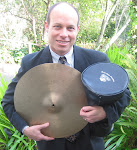Management consultant Peter Drucker taught the concepts “management by objectives” and “management by results.” An employee’s compensation, he wrote, should be linked to the company’s goals.
We teachers are managed by objectives, such as completing an AP training, preparing a new course, or observing a colleague’s lessons with English learners, but we are rarely managed by proper results—increasing student learning. To be fair, student learning is hard to measure. Do we, as most states do, use the questionably suitable but statistically reliable standardized multiple choice tests? Or should we use more valid but less reliable measures such as essay writing and projects showing critical thinking? And even if we can successfully measure student learning, teachers contribute to only a portion of the variance. Other factors such as home life, the student’s peer group, and need to succeed also influence the amount of learning that takes place. Yet, managers in private industry make little allowance for excuses. “Make your sales quota or you’re out!” Similarly, teaching quality is the most important predictor of student success.
Looking at state test scores as an example, what happens to teachers who do not increase and perhaps decrease student learning? Usually nothing. What happens to teachers who do increase student learning? Perhaps they will receive a community award, but these teachers do not receive an increase in salary commensurate with their value to the public. Perhaps individual teachers should not get an increase in salary, because teamwork as much as individual effort crafts good teaching. Intra-department competition damages a school. Inter-school competition benefits everyone. If a department works together and increases student achievement, it makes sense to reward that department with an increase in salary. Students and teachers would benefit. Teachers would have their interests aligned closer to the interests of the students. However, if the incentive program is designed poorly, like the New York program, it won't improve student achievement. (See http://www.nytimes.com/2011/07/18/education/18rand.html?_r=1 here.)
First of all, administrators should not measure student achievement strictly through state test scores. Instead teachers and administrators should work together, creating a formula combining three components: state test scores, student grades and work product, and the teacher’s teaching process. The last component, teaching process, examines progress toward standards and analyzes lesson plans, class engagement, classroom management, and assessment.
Subscribe to:
Post Comments (Atom)
Teacher by Day, Drummer by Night

Please recommend this blog to others
Popular Posts
-
Many students, grammar school to graduate school, dread writing large papers. However, if you know how to break down the task it becomes alm...
-
BF Skinner Carl Rogers This is a scholarly piece but worth the effort. Please read on... The book, Taking Sides (Noll, 2002) st...
-
I wrote this skit to illustrate how the evolution of art--its form, audience and production have changed. Form, audience, and production ha...



No comments:
Post a Comment